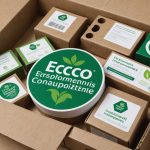Launching a pet adoption agency in the UK is a meaningful endeavor, but navigating the complicated landscape of animal welfare regulations can feel overwhelming. Understanding compliance is vital for creating a successful and ethical agency. This guide offers essential steps to ensure your agency meets all legal requirements while promoting the well-being of animals. By prioritizing regulatory adherence, you not only protect animals but also build a trustworthy foundation for your organization. Ready to make a difference? Let’s explore the key steps to setting up your agency effectively.
Understanding Animal Welfare Regulations in the UK
Animal welfare in the UK is governed by a comprehensive set of regulations aimed at ensuring the humane treatment of animals. These animal welfare laws are crucial for maintaining high standards in pet care and adoption.
Also read : Essential Steps for UK Eco-Friendly Packaging Firms to Achieve Environmental Compliance
Overview of Key Animal Welfare Laws
The UK's primary legislation, the Animal Welfare Act 2006, mandates that anyone responsible for an animal must take reasonable steps to ensure its welfare needs are met. This includes adequate nutrition, a suitable environment, and protection from pain and suffering. Compliance with these regulations is not just a legal obligation but an ethical one.
Importance of Compliance for Pet Adoption Agencies
Pet adoption agencies must adhere to these UK regulations to operate legally and ethically. Compliance ensures that animals are rehomed in environments that meet their welfare needs. Non-compliance can lead to severe consequences, including fines, closure of operations, and reputational damage.
This might interest you : Essential Compliance Steps for UK Event Management Firms Regarding Public Liability Insurance Regulations
Consequences of Non-Compliance
Failure to comply with animal welfare regulations can result in significant penalties. Agencies may face legal action, financial losses, and a damaged reputation. This underscores the importance of understanding and adhering to these compliance requirements to ensure the well-being of animals and the success of adoption services.
Steps to Launch a Pet Adoption Agency
Launching a pet adoption agency involves careful planning and adherence to regulations.
Defining the Mission and Vision
Establishing a clear mission and vision is crucial. This step helps align your agency's goals with the broader objective of promoting animal welfare. Consider what sets your agency apart and how you can uniquely contribute to the pet adoption process.
Legal Structure Options
Choosing the right legal structure is essential for compliance and operational success. Options include registering as a charity, a not-for-profit organization, or a private business. Each structure has specific legal and tax implications, so it’s important to choose one that aligns with your mission.
Developing a Business Plan
A comprehensive business plan is vital for launching a successful pet adoption agency. This plan should outline your agency’s objectives, target market, funding sources, and operational strategies. Include a detailed analysis of the pet adoption process and how your agency will meet the welfare needs of animals.
- Mission and Vision: Define purpose and goals
- Legal Structure: Choose appropriate framework
- Business Plan: Outline strategies and processes
By following these steps, you can ensure a structured and compliant approach to launching your agency.
Necessary Permits and Licenses
Obtaining the right permits and licenses is crucial for establishing a pet adoption agency.
Overview of Required Permits
To operate legally, agencies must secure several permits. These typically include a general business license, animal boarding license, and potentially a charity registration if applicable. Each type of permit ensures compliance with local and national legal requirements.
Process for Obtaining Licenses
The process for obtaining these licenses involves applying through relevant local authorities. It requires submitting detailed information about your agency's operations, such as the facility's layout and care protocols. Typically, authorities will conduct inspections to verify compliance with legal requirements.
- General Business License: Basic operational permit
- Animal Boarding License: For facilities housing animals
- Charity Registration: If operating as a charity
Importance of Maintaining Up-to-Date Documentation
Maintaining up-to-date documentation is essential. Regular renewals of licenses and permits ensure continued legal operation and demonstrate commitment to legal requirements. This diligence helps build trust with stakeholders and protects the agency from legal penalties.
By understanding and fulfilling these obligations, agencies not only comply with regulations but also reinforce their dedication to animal welfare.
Funding Resources for Pet Adoption Agencies
Exploring diverse funding sources is crucial for the sustainability of pet adoption agencies. Identifying potential streams like grants, donations, and sponsorships can significantly bolster financial support.
Identifying Potential Funding Sources
Agencies can tap into various funding sources, including government grants, private foundations, and community donations. Sponsorships from local businesses can also provide substantial financial support. Building relationships with organizations committed to animal welfare can open doors to additional resources.
Tips for Successful Grant Writing
Crafting a compelling grant proposal is essential for securing grants. Highlight your agency's mission and its impact on animal welfare. Clearly outline the need for financial support and how it will be utilized. Tailor each proposal to the specific requirements of the funding body to increase your chances of success.
Leveraging Partnerships
Forming partnerships with local businesses and organizations can enhance financial support. These collaborations can lead to sponsorships and in-kind donations, reducing operational costs. Engage with partners who share similar values to maximize the benefits of these partnerships.
- Grants: Government and private foundations
- Donations: Community contributions
- Sponsorships: Local business partnerships
By diversifying funding sources, pet adoption agencies can ensure long-term financial stability and continue their vital work.
Best Practices for Compliance with Welfare Laws
Ensuring adherence to animal welfare standards is essential for operational success.
Establishing Standard Operating Procedures
Creating standard operating procedures (SOPs) is crucial for maintaining high animal welfare standards. SOPs provide clear guidelines on daily care, feeding routines, and health checks, ensuring consistent practices across the organization. This structured approach aids in meeting compliance best practices and fosters a culture of responsibility among staff.
Training Staff and Volunteers
Regular training sessions for staff and volunteers are vital to uphold compliance best practices. These sessions should cover the latest animal welfare standards and operational guidelines. By investing in continuous education, agencies ensure that everyone involved is knowledgeable and capable of providing the best care possible.
Regular Audits and Evaluations
Conducting regular audits and evaluations helps agencies maintain compliance with welfare laws. These assessments identify areas for improvement and ensure adherence to operational guidelines. By systematically reviewing practices, agencies can promptly address any compliance gaps, reinforcing their commitment to animal welfare.
- SOPs: Clear care guidelines
- Training: Staff and volunteer education
- Audits: Regular compliance checks
Implementing these best practices not only ensures legal compliance but also enhances the overall welfare of animals under care.
Marketing Your Pet Adoption Agency
Effective marketing strategies are essential for attracting adopters and donors.
Developing a Marketing Plan
Creating a comprehensive marketing plan is crucial for the success of your pet adoption agency. This plan should outline key marketing strategies to attract potential adopters and donors. Consider identifying your target audience and tailoring your outreach efforts to meet their preferences. A well-structured plan helps ensure consistent messaging and maximizes engagement.
Utilizing Social Media and Online Platforms
Social media and online platforms serve as powerful tools for community engagement. By leveraging these channels, agencies can reach a broader audience with minimal cost. Regularly posting engaging content, such as success stories and upcoming events, keeps your community informed and involved. Consider using targeted ads to further enhance your outreach efforts.
Hosting Community Events
Hosting community events is an effective way to raise awareness and encourage adoptions. These events provide opportunities for face-to-face community engagement, allowing potential adopters to interact with animals. Organizing adoption fairs, educational workshops, and fundraising activities can significantly boost your agency's visibility and attract new supporters.
- Social Media: Engage with a wider audience
- Community Events: Foster personal connections
- Marketing Plan: Define clear strategies
By implementing these marketing strategies, your agency can effectively attract adopters and donors, ensuring long-term success and sustainability.
Building a Network of Support
Collaboration is key to a thriving pet adoption agency.
Identifying Local Veterinarians and Shelters
Building a robust network of support involves identifying local veterinarians and shelters for potential collaboration. Establishing partnerships with these entities can enhance the care provided to animals and streamline the adoption process. Veterinarians can offer discounted services or health assessments, while shelters can provide additional resources and support.
Establishing Relationships with Animal Welfare Organizations
Engaging with animal welfare organizations is crucial for strengthening your community support network. These organizations often have extensive resources and expertise that can be invaluable. Collaborating with them can lead to joint initiatives, shared knowledge, and increased visibility for your agency. Such relationships can also foster a sense of community and shared mission.
Engaging Volunteers and Advocates
Volunteers and advocates play a vital role in community outreach efforts. By actively engaging these individuals, your agency can expand its reach and impact. Volunteers can assist with daily operations, events, and educational programs, while advocates can help raise awareness and promote your mission.
- Local Veterinarians: Health assessments and services
- Animal Welfare Organizations: Shared resources and initiatives
- Volunteers: Support daily operations and outreach
A strong network of support is fundamental to the success and sustainability of a pet adoption agency.
Case Studies of Successful Pet Adoption Agencies
Analyzing success stories to uncover key strategies and lessons
Analysis of Successful Agencies
Examining case studies of thriving pet adoption agencies in the UK reveals common strategies that contribute to their success. These agencies often prioritize transparency and community engagement. For instance, the Battersea Dogs & Cats Home implements open days to connect potential adopters with animals, fostering trust and rapport.
Key Strategies Employed
Successful agencies frequently employ innovative marketing and operational strategies. They utilize digital platforms effectively, sharing success stories and adoption testimonials to reach wider audiences. Additionally, many agencies focus on personalized adoption processes, ensuring a good match between pets and adopters.
- Community Engagement: Hosting events and workshops
- Digital Marketing: Leveraging social media and online platforms
- Personalized Adoption: Tailoring the adoption process to individual needs
Lessons Learned
From these agency examples, several lessons emerge. Flexibility and adaptability in operations are crucial, especially when faced with challenges such as fluctuating adoption rates. Agencies also learn the importance of building strong networks with local businesses and animal welfare organizations to enhance their support systems and resource availability.
By studying these success stories, new agencies can implement proven strategies and anticipate potential challenges, paving the way for their own success.
Operational Tips for Long-Term Success
Ensuring your agency thrives over time through effective practices.
Implementing Effective Management Practices
To achieve operational success, it's crucial to implement effective management practices for both staff and volunteers. Regular training and clear communication channels are essential. Establishing structured schedules and roles ensures everyone understands their responsibilities, promoting a cohesive working environment. This approach not only enhances productivity but also boosts morale, contributing to overall agency management.
Strategies for Maintaining Financial Sustainability
Financial sustainability is vital for long-term success. Diversifying income streams through grants, donations, and sponsorships can stabilize finances. Implementing a transparent budgeting process helps track expenses and allocate resources efficiently. Regular financial reviews can identify potential savings and areas for investment, ensuring the agency remains financially robust.
Importance of Community Involvement and Feedback
Engaging the community is key to operational success. Encourage feedback from adopters and stakeholders to continuously improve services. Hosting community events and workshops fosters a sense of belonging and support. This involvement not only strengthens agency management but also helps tailor services to meet community needs, ensuring the agency's sustainability.
- Staff Training: Regular, structured sessions
- Budgeting: Transparent and efficient
- Community Events: Enhance engagement and feedback











